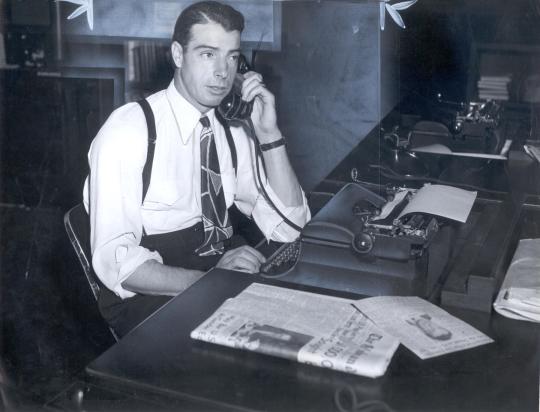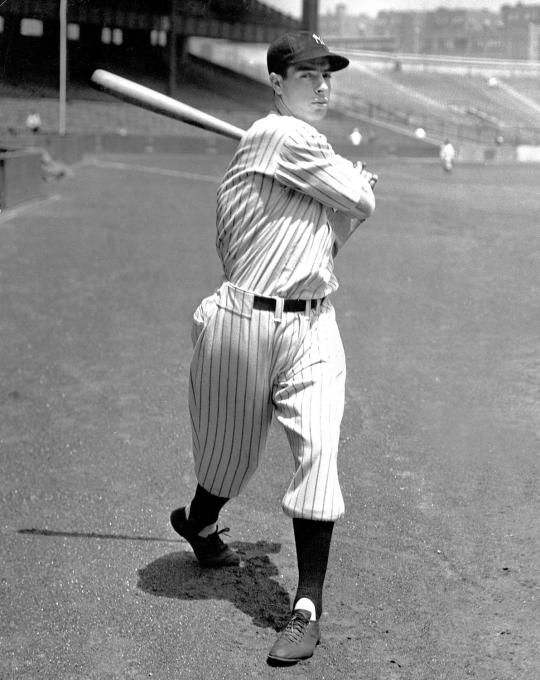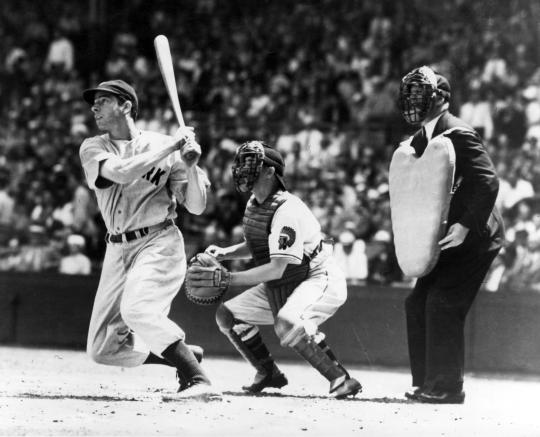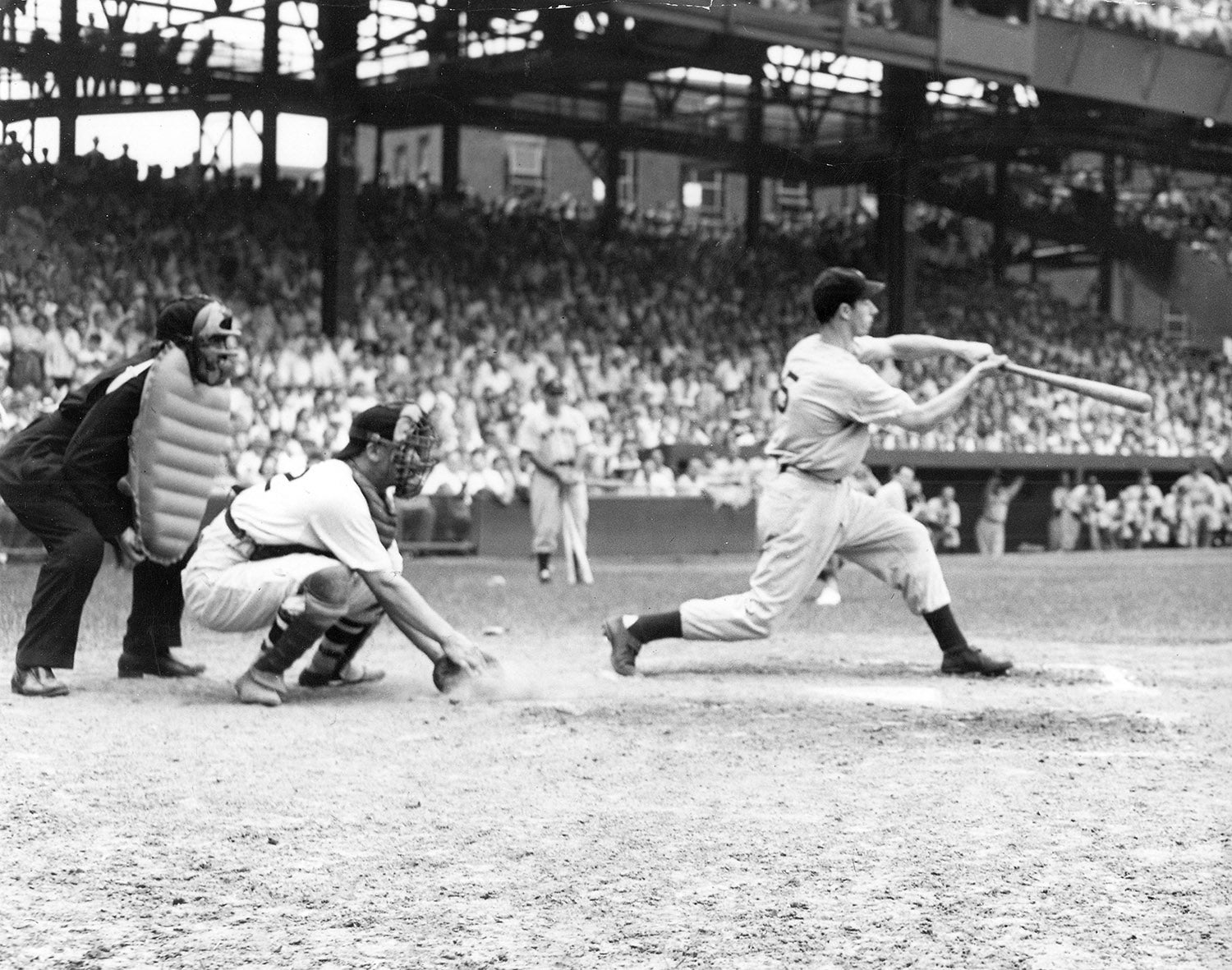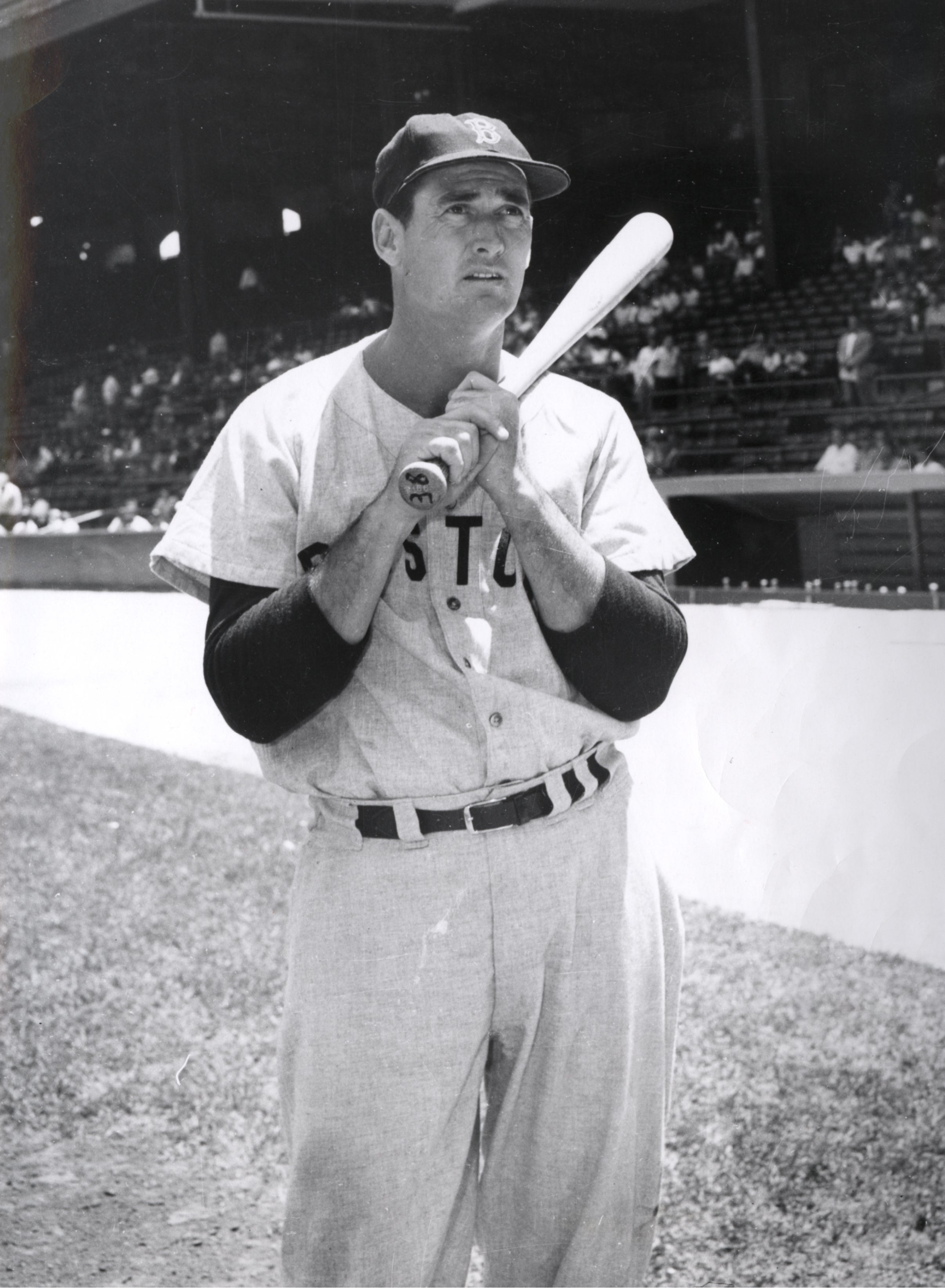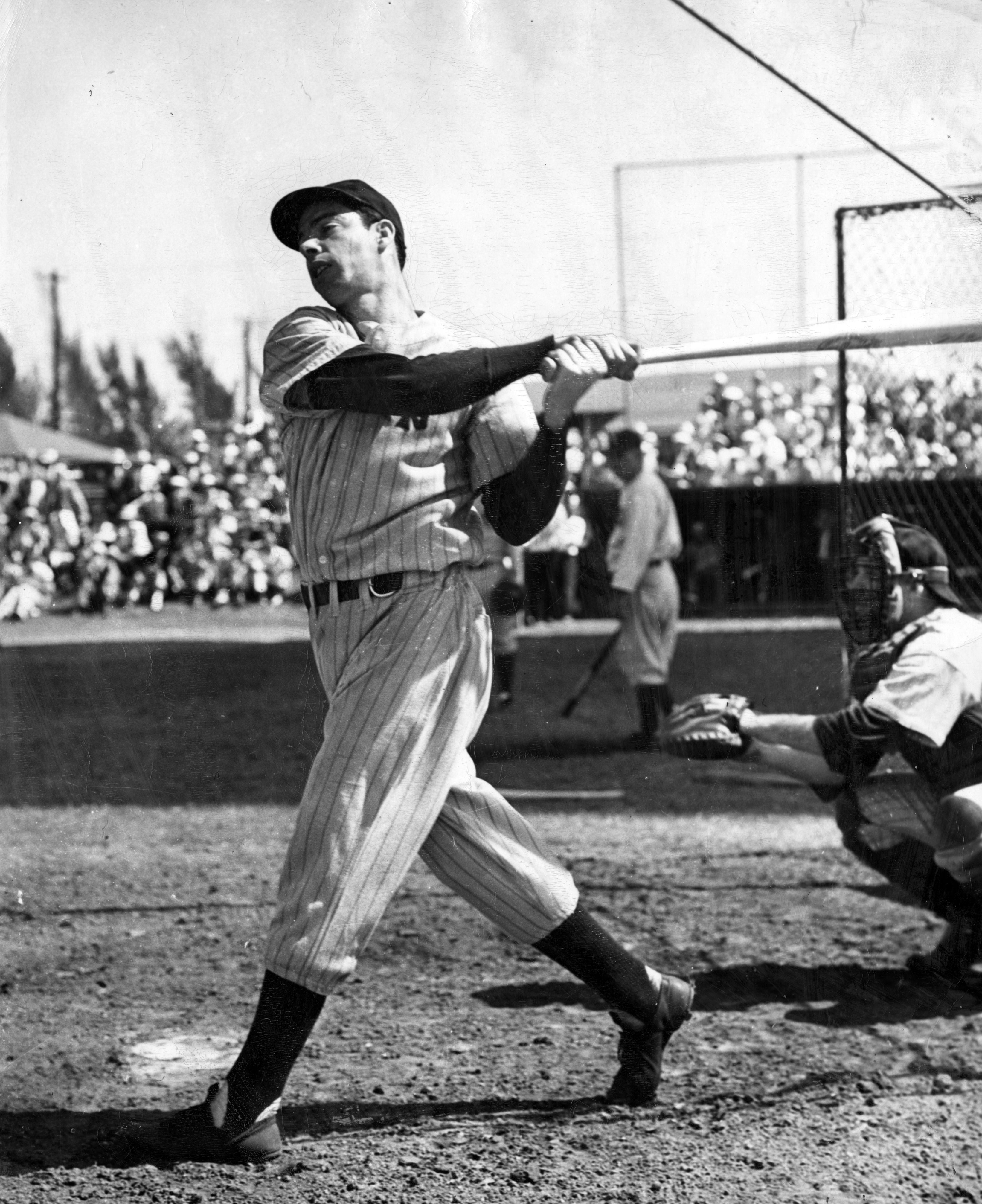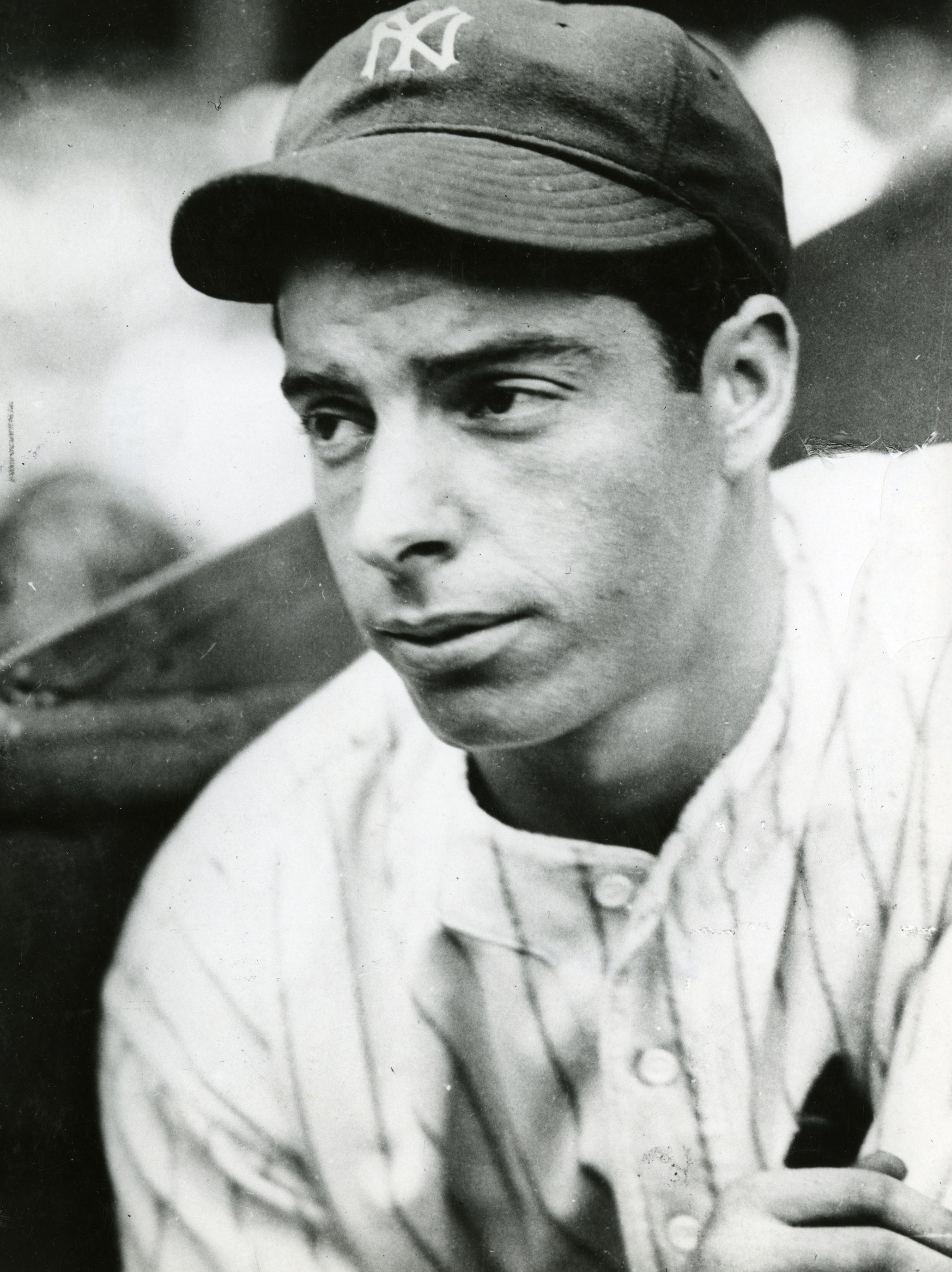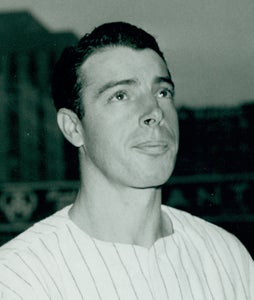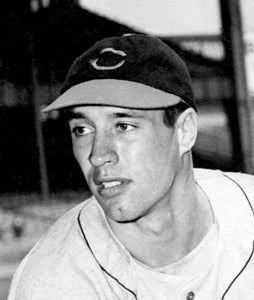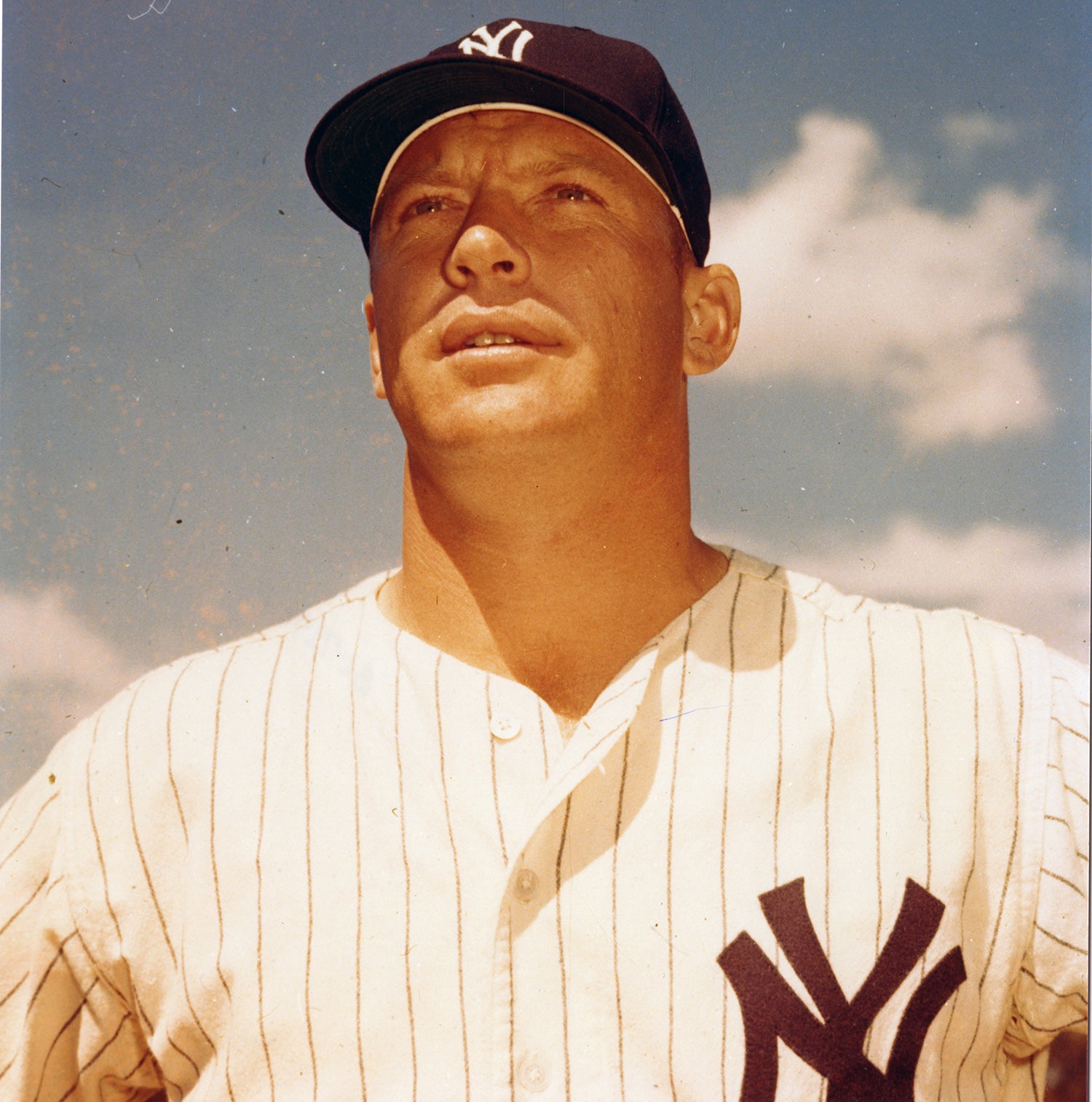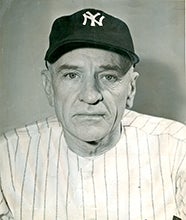- Home
- Our Stories
- DiMaggio walks away from the game with the same dignity he played it
DiMaggio walks away from the game with the same dignity he played it
The quote is so famous, it has become bigger than the event that precipitated it.
“When baseball is no longer fun, it’s no longer a game,” said Joe DiMaggio on Dec. 11, 1951. “And so, I’ve played my last game of ball.”
Yankees Gear
Represent the all-time greats and know your purchase plays a part in preserving baseball history.
With that, DiMaggio ended his playing days after 13 big league seasons – nine of which resulted in Yankees World Series championships.
The news was hardly a surprise, as DiMaggio had hinted since the spring that the 1951 season might be his last. At age 36, DiMaggio hit .263 – the lowest average of his career and only the second season where his batting mark dropped below .300. He totaled just 12 home runs and 71 RBI, but still hit in the cleanup spot throughout the year and into the Postseason as the Yankees won their third straight World Series title.
He also played center field in each of his 113 games in the field. And though Yankees manager Casey Stengel had toyed with the idea of moving DiMaggio to first base in 1950, modern defensive metrics say that DiMaggio performed at a slightly above average level in center in 1951.
“I believe I would have lasted a couple of years longer if it had been all day baseball,” DiMaggio told Harold Rosenthal of the New York Herald Tribune in a story that was syndicated to papers around the country. “It took me longer to recuperate after a night game (in 1951).
“I took a bad beating physically. I can remember finding it tough to get out of bed.”
DiMaggio finished his career with a .325 batting average, 361 home runs, 1,527 RBI and a scant 369 strikeouts. He was named to the All-Star Game in each of his 13 seasons, and the Yankees won the American League pennant 10 times in his 13 years.
At the press conference where he announced his retirement, DiMaggio posed for photos and motion picture cameras for almost an hour before answering a seemingly unending stream of questions from reporters. He cited Ted Williams as the game’s best hitter, and said that Indians right-hander Mel Harder was the toughest pitcher he faced.
Indeed, Harder limited DiMaggio to a .229 batting average with no homers and nine RBI in 83 at-bats. By comparison, DiMaggio had 193 at-bats against Harder’s teammate Bob Feller and hit .342 with 11 homers and 46 RBI – the most home runs and RBI DiMaggio had against any opponent.
But while no one could replace DiMaggio in the hearts of Yankees fans, his successor in center field was already in the clubhouse. Mickey Mantle debuted in 1951 and spent most of the season in right field, hitting .267 with 13 home runs and 65 RBI. The next season, Mantle took over in center – hitting .311 with 23 home runs and 87 RBI while finishing third in the American League Most Valuable Player Award voting.
“All I can do is my best, and I’ll sure give that,” Mantle told the United Press after saying that he would not be able to fill DiMaggio’s shoes. “It’s a great break for me. Anybody would be crazy if he didn’t want to play with the Yankees. But I sure hate to see old Joe leaving the game.”
DiMaggio, meanwhile, forged ahead into a post-playing career that saw his star burn brighter than ever.
“I feel that I have reached the stage where I can no longer produce for my ball club, my manager, my teammates and my fans the sort of baseball their loyalty to me deserves,” DiMaggio said. “If I can’t give out what I want to give out, I don’t want to play.”
Craig Muder is the director of communications for the National Baseball Hall of Fame and Museum

